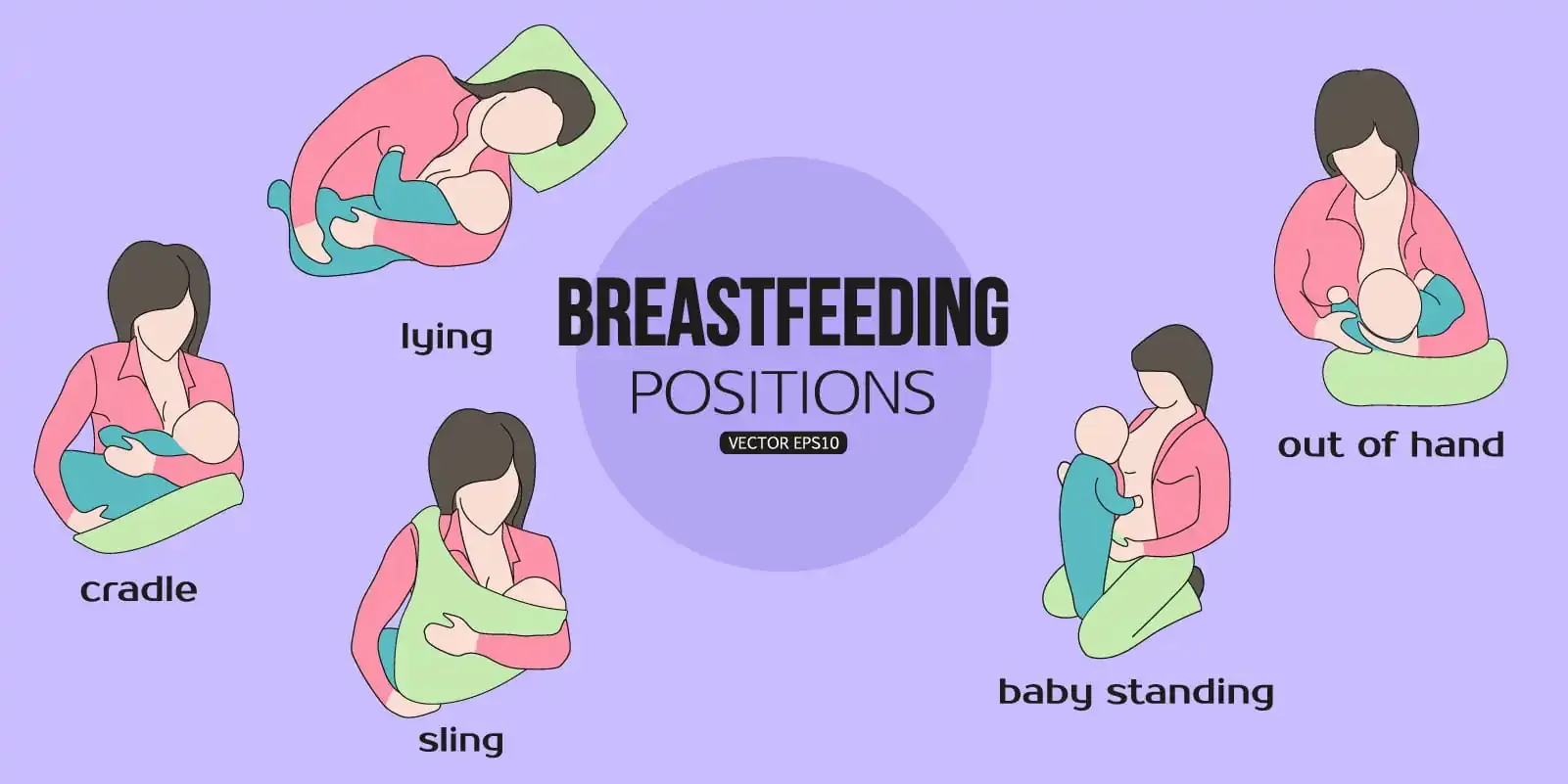
Breastfeeding is a unique way to connect with your baby, both emotionally and physically. Through breastfeeding, not only is the basic need for food for the newborn met, but you also learn to recognize the signs of the body language of your baby, and your baby learns to trust you. Therefore, breastfeeding is a unique opportunity for the development of the bond between mother and child.
Mother's Milk: The Most Suitable Food for the Baby
Mother's milk is the best food for the baby, as it is easy to digest, and contains all the necessary nutrients (vitamins, minerals, and antioxidants), resulting in strengthening the baby's immune system and reducing the risk of certain diseases. Additionally, it has no cost, is always available, and easily accessible at any time, without preparation.
Breastfeeding: Process and Breastfeeding Positions
There are many different breastfeeding positions, which you need to try first to find which one suits you and your baby best. The ideal breastfeeding position is different for each mother, however, it needs to have the following characteristics:
- Helps in skin-to-skin contact between mother and baby
- Is comfortable for the mother and does not strain the shoulders or hands
- The baby's head is relaxed and in a straight line, with the nipple at the level of the nose
- The baby can latch onto the breast well, meaning the nipple is close to the baby's palate
- You don't have to lean towards the baby or move, but the baby comes close to you
Generally, we recommend that babies be exclusively breastfed for at least six months. Once the baby starts eating solid food, breastfeeding can continue supplementarily for two years or more. Usually, it is initially done every 2-3 hours and can go up to every 4-5 hours.
Initially, in the first days after childbirth, your breast produces colostrum, which helps the newborn's digestive system to develop and prepare for the digestion of the mother's milk. Mother's milk is normally produced 10-15 days after childbirth. It is important to remember that most babies lose a little weight in the first days after their birth, but this has nothing to do with breastfeeding.

What are the benefits of breastfeeding for the baby?
Breastfeeding has significant benefits for the newborn baby. These benefits increase the more you breastfeed, although any amount of breast milk is beneficial for the baby, even if you breastfeed for a very short period.
The benefits of breast milk, either through breastfeeding or through a bottle, are significant because the mother's milk:
- Is produced and changes according to the baby's nutritional needs
- Is easy to digest
- Is the most balanced food available, with the right ratio of fat, sugar, water, protein, and vitamins
- Contains antibodies that protect against infections and boost the newborn's immune system
- Contains substances that calm the baby
- Contributes to healthy weight gain
Breastfeeding has long-term benefits for the baby that last until adulthood. It can help reduce the risk of developing infections and diseases, diarrhea and vomiting, as well as obesity, type 2 diabetes, bronchial asthma, gastrointestinal or cardiovascular diseases during their lifetime.
What are the benefits of breastfeeding for the mother?
What is not so well known is that breastfeeding and the production of breast milk also have health benefits for the mother. Specifically, it reduces the risk of conditions such as:
- Postpartum depression
- Osteoporosis
- Obesity
- Cardiovascular diseases (e.g., high blood pressure)
- Breast, endometrial, and ovarian cancer
- Type 2 diabetes
Breastfeeding can also help you recover from childbirth faster, through the secretion of the hormone oxytocin, which helps the uterus return to its normal size.
How will we help you?
Although breastfeeding is a natural process, it is a skill that, like all skills, is learned gradually. Preparing for breastfeeding with us will make this process smoother. We will inform you about all the important issues related to breastfeeding, such as breastfeeding positions and the problems you may face, and we will be by your side throughout the breastfeeding period. Of course, keep in mind that breastfeeding may require patience and some time to get used to and adapt. Just try!
Sources:
https://www.nhs.uk/conditions/baby/breastfeeding-and-bottle-feeding/breastfeeding/
https://www.webmd.com/parenting/baby/nursing-basics
https://my.clevelandclinic.org/health/articles/15274-benefits-of-breastfeeding









